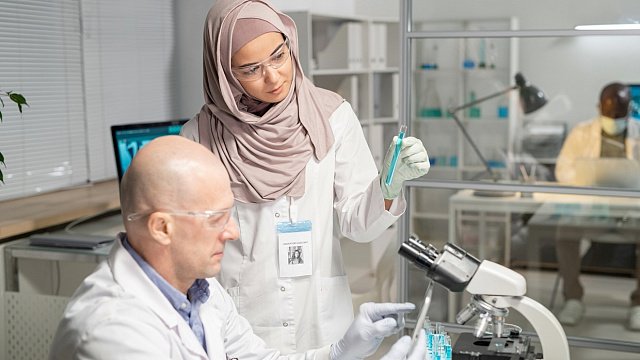05.06.25
17:00
Iranian scientists produce bioengineered silk proteins for advanced skin and bone regeneration
The achievement marks a significant advancement in local biotechnological capabilities
Iranian researchers have developed a high-purity, bio-based production method for silk proteins fibroin and sericin, enabling their use in medical, pharmaceutical, and cosmetic applications. These proteins, derived from silkworm cocoons, are globally recognised for their potential in skin healing and tissue regeneration. This is reported by
Mehr News Agency, a partner of TV BRICS.
According to experts, the proteins were extracted and purified using green synthesis techniques, ensuring high cellular compatibility. The team also developed bio-based hydroxyapatite, calcium oxide, and calcium hydroxide for regenerative applications.
In preclinical trials, the combined use of silk fibroin and bio-hydroxyapatite significantly accelerated cartilage and bone regeneration in joint injuries. In these tests, the materials were implanted into bone cavities in rabbits, leading to rapid tissue repair and bone formation compared to control groups.
According to the source, the use of green synthesis methods distinguishes this approach from conventional chemical synthesis, enhancing product safety for sensitive applications such as wound healing and implantable medical materials.
In addition to medical applications, the research team highlighted other potential uses for silk fibroin, including edible coatings to preserve fruits and vegetables and absorbable surgical sutures.
Furthermore, the local production has already supported several Iranian medical universities and research centres with cost-effective access to these advanced biomaterials.
Photo:
iStock
Back


